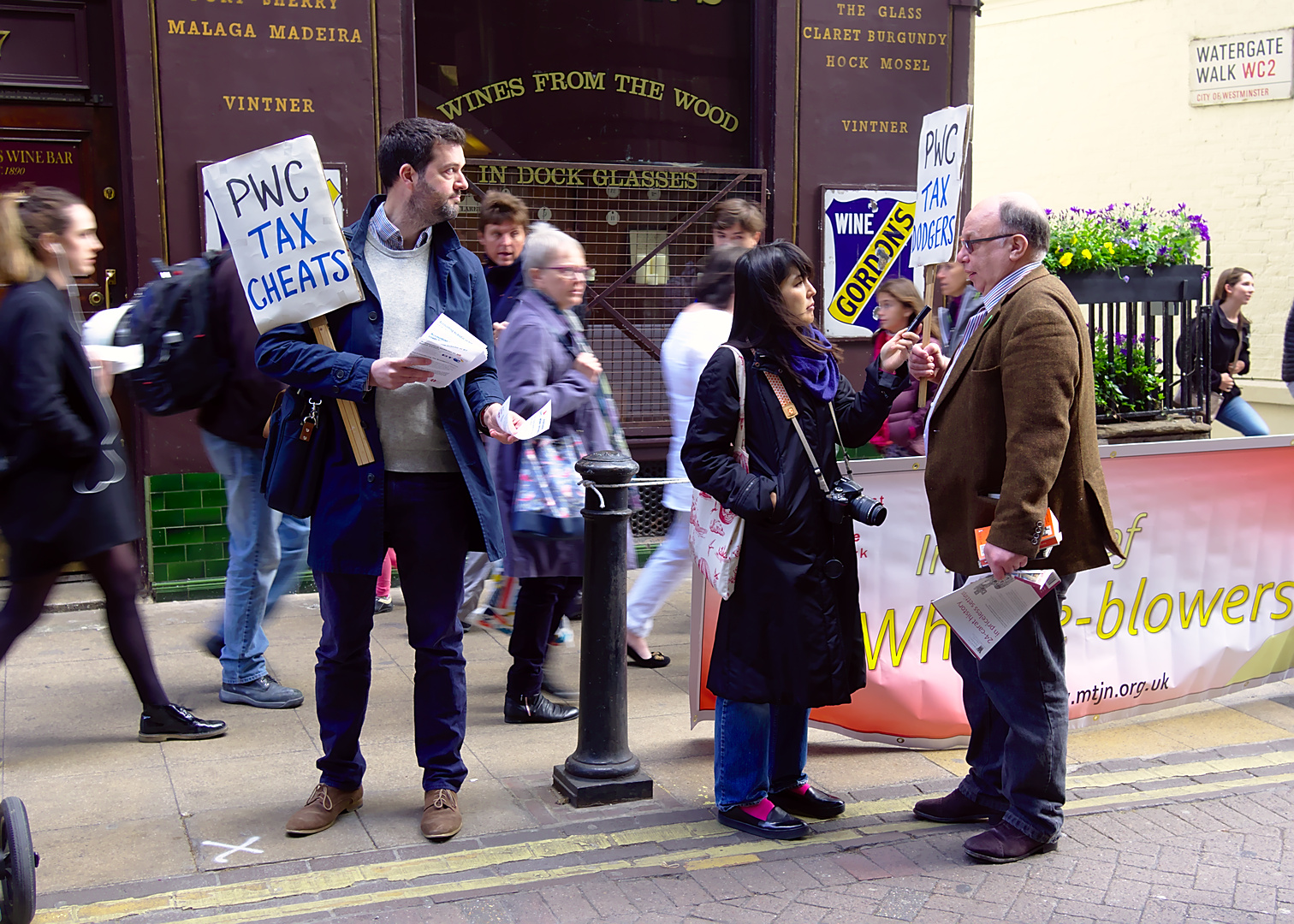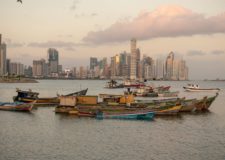
Welcome to the Offshore Wrapper – your weekly update from TJN.
Happy Paniversary!
This week it’s been one year since the Panama Papers were leaked, and a number of organisations around the world have been marking the occasion though the global week of action for tax justice.
In London, activists from the TJN and the Methodist Tax Justice Network held a protest outside the offices of PriceWaterhouseCoopers. Why PwC? Well the auditor has been one of the biggest promoters of tax avoidance schemes for multinationals, as well as having been implicated in a host of other corporate scandals.
From watchdogs to lapdogs
But of course it isn’t just PwC that’s been asleep at the wheel while the companies they audit crash. A report which Atul Shah of the University of Suffolk Business School published a couple of years ago is worth another look. It investigates the failure of KPMG to warn shareholders of problems with major UK bank HBOS before it collapsed in 2008. Shah’s findings make disturbing reading. Rather than acting as the company’s watchdog, KPMG saw itself as a strategic partner to the company. And when a watchdog turns into a lapdog, what hope can the public have for effective and meaningful corporate governance?
A year on…
So, one year after the Panama Papers what impact did the scandal have on global policy making? Without a doubt the revelations influenced the outcome of the global anti-corruption summit held in the UK last year. In the run up to the conference UK government officials were trying to peg down expectations of any agreements being reached, but in the end a number of countries did sign up to setting up registers of beneficial ownership of companies.
However, as Porter McConnell from the Financial Transparency Coalition points out in an op-ed in Nigeria’s Premium Times, progress has been lacking in the British Overseas Territories – places like the BVI, who are at the root of the problem. As Porter highlights, the US is another threat to global financial transparency and until these pariah states come in from the darkness, there’s a long way to go before we can claim victory in the fight against tax evasion, corruption and money laundering.
Maltese cross on tax avoidance moves by the EU
According to Reuters, the current holder of the rotating presidency of the European Union – Malta is seeking to slow down the pace of reform on measures to tackle corporate tax avoidance. Global tax and secrecy scandals such as the Panama Papers and Luxleaks have kicked the EU into action, and it has proposed a number of reforms to tighten up the system.
However, the European Union itself is home to a number of tax havens, such as er, Malta itself, which now appears to be trying to block progress. Malta is citing the need for the bloc to remain ‘competitive’ and says it doesn’t want to increase legal uncertainty. We’ve heard those arguments many times before from tax havens, and they’re fallacious.
We’ve written many times about how and why tax competition between nations is harmful and as for the ‘legal uncertainty’ argument, that is itself the petri dish of tax avoidance, which thrives off mismatches between the legal systems of different countries. Efforts to tackle tax avoidance rely on nations cooperating to align their laws, and in doing so, reduce legal uncertainty.
US border adjustment tax could be devastating to the global south
A new report from the South Centre looks at the prospect of the US border adjustment tax and its impacts on the developing world. The conclusions are fairly damning. The opening paragraph sets the tone:
“A new and deadly form of protectionism is being considered by the leadership of the United States that could have devastating effect on the exports and investments of developing countries like Malaysia as well as destabilise the world economy.”
The full report can be read here.





Government, public = mother
Multinational corporation, bank, US = father
Tax Justice Network = Oedipus